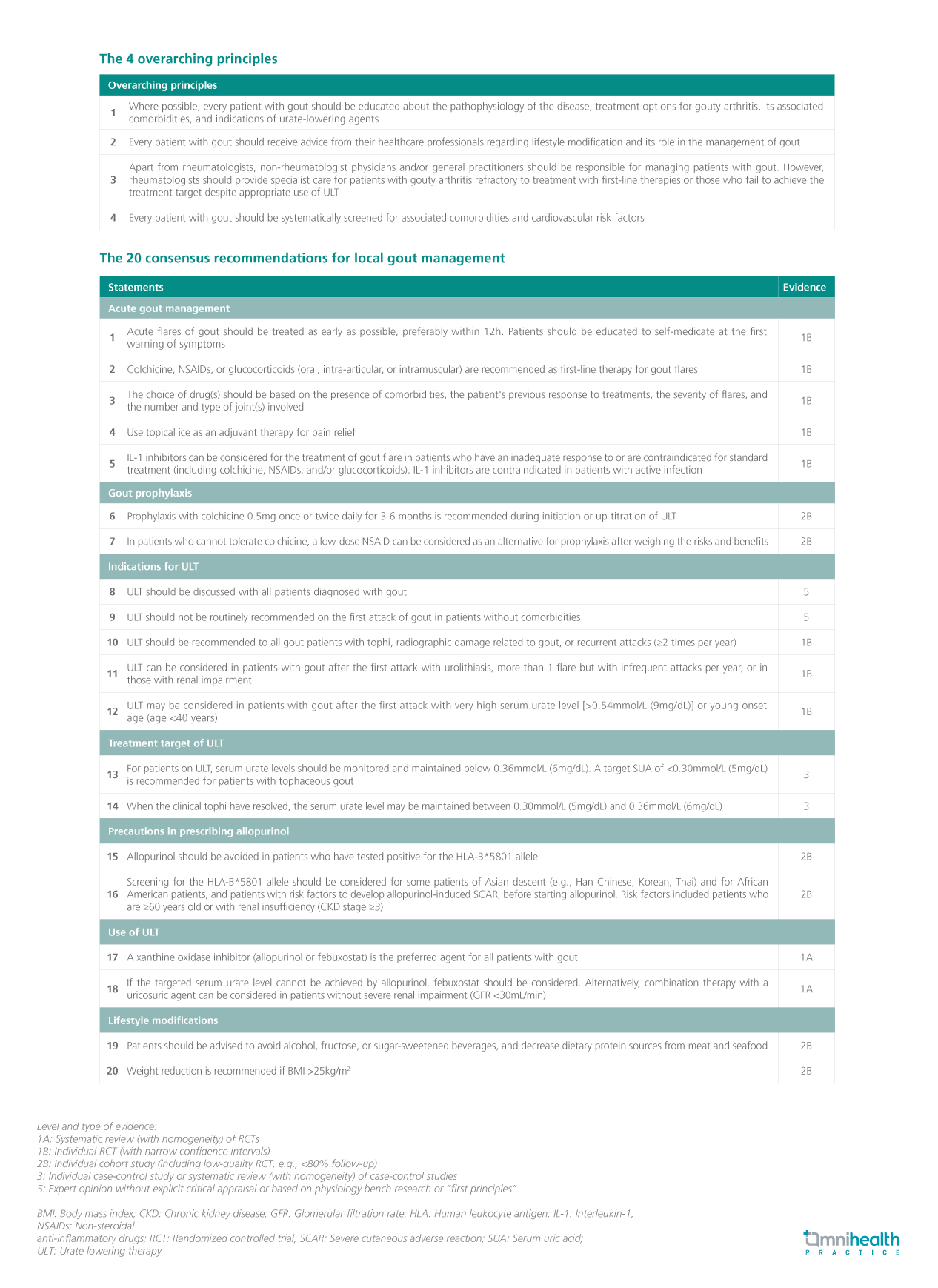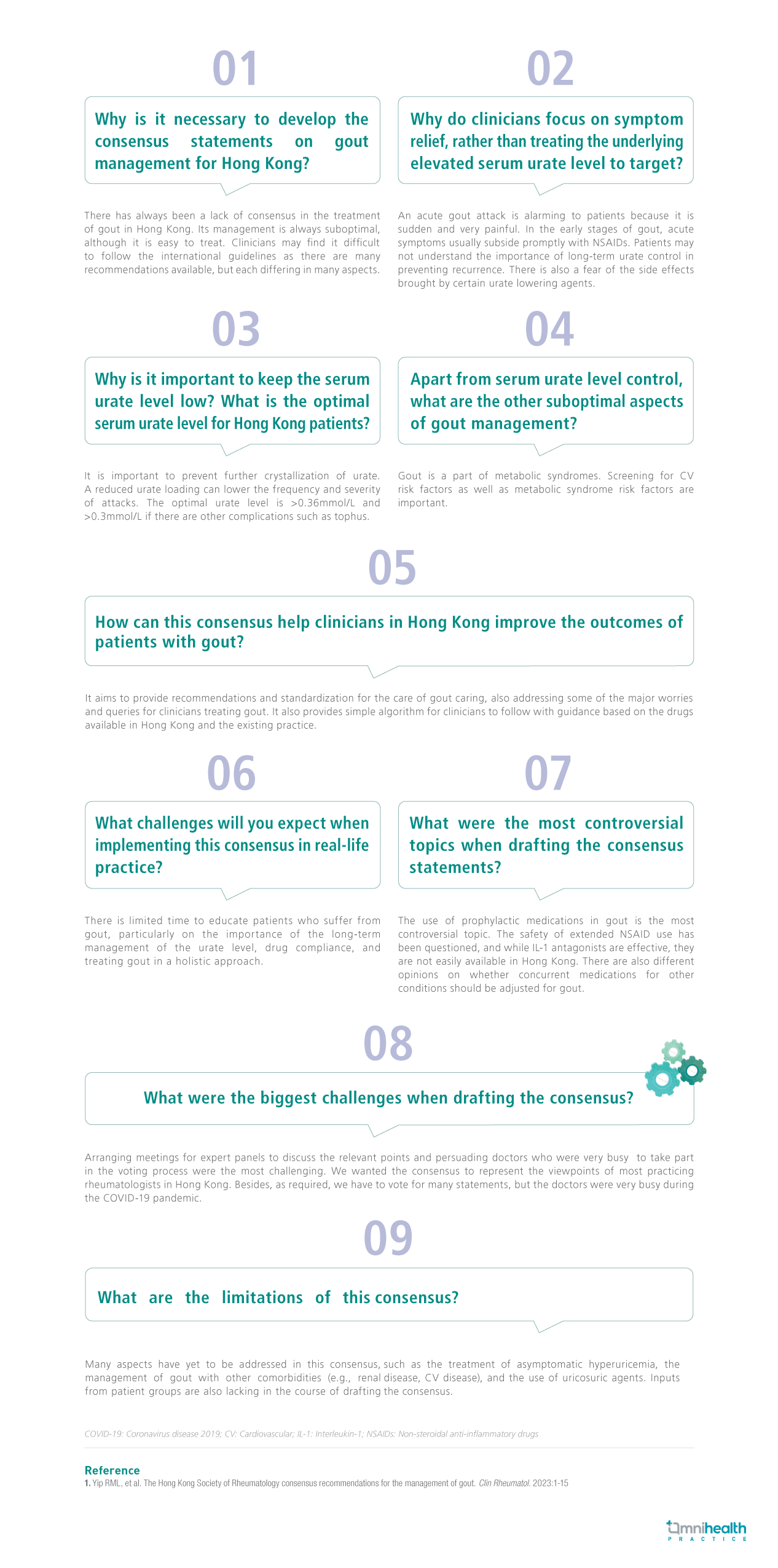INDUSTRY ESSENTIALS - RESEARCH SPOTLIGHT
Insights into The Hong Kong Society of Rheumatology's local consensus recommendations for gout management
Gout represents a prevalent non-communicable disease in Hong Kong's population.1 As evidenced by a local study, the prevalence of gout witnessed a nearly two-fold increase from 1.56% in 2006 to 2.92% in 2016.1 This surge has been ascribed to the emergence of multiple risk factors, including an aging population, increased alcohol and meat consumption, and obesity.1 Consequently, numerous initiatives advocating primary gout prevention have been launched.1 Nevertheless, endeavors to ameliorate gout management within Hong Kong are still lacking.1
At present, the treatment goal predominantly focuses on the expeditious alleviation of arthritic symptoms of gout, neglecting the management of the underlying hyperuricemia.1 Despite the extensive accessibility and the demonstrated efficacy of urate-lowering therapy (ULT), a mere 25% of gout-afflicted patients received the treatment and only 35.8% attained the desired serum uric acid (SUA) concentration of <0.36mmol/L.1 Clearly, the management of gout in Hong Kong remains suboptimal.1 Despite the presence of international guidelines pertaining to gout management, disparities exist in ethnic, genetic, social, and cultural backgrounds.1 Additionally, constraints in local clinical practices and the accessibility of medications further contribute to the heterogeneity of treatment approaches.1 In light of this, the Hong Kong Society of Rheumatology (HKSR) has taken the initiative to develop a compendium of consensus guidelines, aspiring to provide valuable direction not solely for primary care practitioners, but also for specialists engaged in the management of patients susceptible to gout and its associated complications.1
A modified Delphi method was used to establish the local consensus recommendations.1 A total of 60 specialists, consisting of 83% rheumatologists, 9% renal specialists, and 5% primary care physicians, participated in the Delphi process.1 They agreed on 4 overarching principles and 20 statements regarding local gout management.1


Dr. Yip, Man-Lung Ronald, a renowned rheumatologist and the first author of the consensus statements, elucidated the rationale behind the development of these consensus recommendations for gout management in a subsequent interview with Omnihealth Practice.


